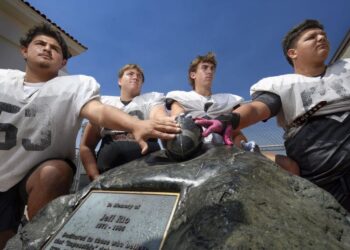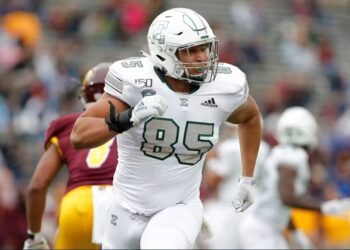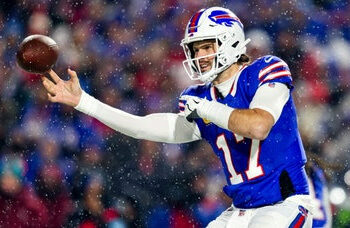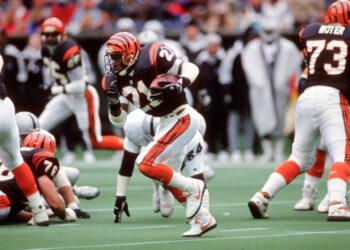With flag football officially making its Olympic debut at the 2028 Los Angeles Games, excitement is surging across the football world. For many NFL stars, the prospect of representing their country on the world’s biggest athletic stage is a tantalizing opportunity. Yet, as these elite athletes begin discussing Olympic dreams, a quieter, long-standing community watches with both hope and concern: the flag football veterans who have spent years building the sport from the ground up.
For decades, flag football has existed in relative obscurity compared to its full-contact counterpart. Played in parks, youth leagues, and on amateur circuits across the globe, the sport emphasizes agility, strategy, and speed over brute force. It has been a particularly inclusive space, offering opportunities to athletes of varying sizes, ages, and backgrounds, including a large number of women and international players. Flag football veterans have not only kept the sport alive—they’ve grown it, refined it, and fought for recognition long before it ever earned Olympic consideration.
Now, with Olympic status secured, flag football stands on the precipice of global legitimacy. But the question remains: Who will get the chance to represent their countries? If NFL stars dominate the rosters, will the pioneers of the sport—the people who have trained, competed, and advocated for flag football for years—be left behind?
NFL players like Tyreek Hill and Micah Parsons have already voiced interest in joining Team USA in 2028. Their athleticism, star power, and competitive edge would undoubtedly elevate the sport’s visibility on the Olympic stage. There is no denying the appeal of seeing household names compete for gold. The NFL itself has partnered with the International Federation of American Football (IFAF) to promote flag football’s Olympic bid, a clear sign of the league’s intent to stay involved in the sport’s future.
Yet, for many in the flag football community, this sudden spotlight feels like a double-edged sword. While NFL involvement can bring attention, funding, and infrastructure, it may also sideline those who have already earned their stripes. For flag football players who have competed in international tournaments, trained year-round, and served as ambassadors for the sport, the Olympic moment is supposed to be a culmination of their efforts—not a stage overtaken by outsiders at the eleventh hour.
Athletes like Vanita Krouch, a veteran quarterback for the U.S. women’s national flag football team, and others in similar positions globally, have expressed both pride and caution. They understand the marketing value NFL stars bring, but also fear that Olympic rosters may overlook players with actual flag football experience. The sports are not identical. While flag football shares some DNA with tackle football, the gameplay, strategy, and dynamics are different enough that even the most talented NFL players would need time to adjust.
Moreover, flag football’s inclusive nature risks dilution if Olympic teams become showcases for NFL superstars rather than a celebration of the sport’s diverse roots. For international teams, especially those from countries without professional football leagues, this moment represents a historic breakthrough. Allowing established pros to dominate the narrative may discourage grassroots development and undermine the very essence of Olympic competition, which ideally prioritizes fair representation and the spirit of amateur athleticism.
There’s also a broader philosophical debate at play. Should the Olympics be a stage for the best athletes in a sport, regardless of their background? Or should it also honor the communities and cultures that have built the sport over time? For flag football, the answer may lie somewhere in between.
One possible solution would be to limit the number of professional football players per team or to create qualification systems that prioritize flag football experience. This would ensure a level playing field and give longtime practitioners the opportunity they’ve earned. Another approach could involve professional and amateur divisions or age brackets, akin to how other sports structure Olympic competition.
Whatever the final format, it is crucial that Olympic flag football in 2028 remains authentic to the spirit of the game. That means honoring not just the talents of NFL stars, but also the dedication of the many flag football athletes who have long played without fanfare or big paychecks. Their passion has carried the sport to this moment.
As the road to 2028 begins, the challenge will be to balance visibility with integrity, fame with fairness. NFL players may be eyeing the Olympics, but for flag football veterans, it’s not about glamour or gold medals—it’s about finally being seen.











